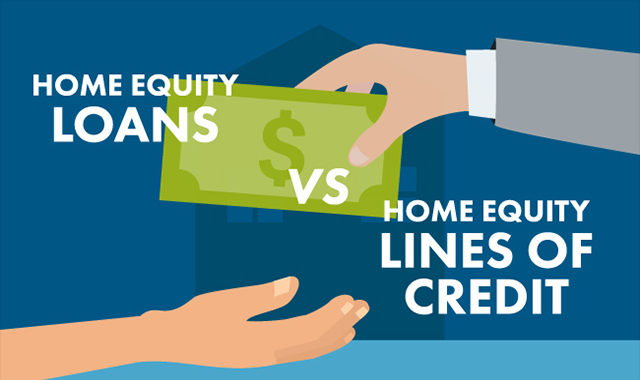How Equity Release Mortgages Work with Legacy Preparation
How Equity Release Mortgages Work with Legacy Preparation
Blog Article
Discovering the Various Types of Equity Release Mortgages Available Today
Equity Release home mortgages existing different alternatives for house owners aged 55 and over. equity release mortgages. These economic products accommodate different needs and preferences, allowing individuals to access funds from their residential property. From life time home loans to common recognition mortgages, each kind supplies distinctive benefits. Recognizing these alternatives is essential for making notified decisions. What variables should one take into consideration when selecting the most suitable equity Release plan? The details that comply with might lose light on this vital subject
Understanding Equity Release Mortgages
Equity Release mortgages provide homeowners, normally those aged 55 and over, with a way to access the value linked up in their property without requiring to offer it. This monetary option enables individuals to transform a section of their home equity into cash, which can be made use of for numerous functions, such as home improvements, repaying financial obligations, or funding retirement.Equity Release can take different kinds, however it fundamentally involves loaning versus the worth of the home while maintaining possession. Homeowners can choose to obtain a swelling sum or a collection of smaller sized settlements, relying on their financial demands and preferences.Additionally, the amount available for Release is influenced by the residential property's value, the home owner's age, and particular lender requirements. On the whole, recognizing equity Release home mortgages is essential for house owners to make enlightened choices concerning using their home's equity while taking into consideration the lasting ramifications.
Lifetime Mortgages
Lifetime home mortgages represent among the most popular forms of equity Release. This financial item enables house owners, generally aged 55 or older, to obtain versus the value of their residential or commercial property while keeping possession. The finance, which is protected versus the home, accumulates interest gradually but does not require monthly repayments. Rather, the financing and accrued passion are repaid when the property owner dies or relocates right into long-term care.Lifetime home loans offer adaptability, as debtors can select to get a swelling amount or decide for a drawdown center, accessing funds as required. Importantly, many strategies featured a no-negative-equity warranty, making certain that customers will never owe even more than the worth of their home. This function offers comfort, enabling individuals to enjoy their retired life without the anxiety of depleting their estate. Generally, lifetime mortgages offer as a feasible alternative for those seeking monetary assistance in later life.
Home Reversion Plans

Drawdown Lifetime Mortgages
While lots of property owners seek means to access their riches, drawdown life time mortgages offer a flexible choice that enables people to Release funds gradually. This kind of equity Release mortgage enables house owners to borrow versus the worth of their residential property while maintaining possession. Unlike typical lifetime home mortgages, drawdown strategies allow debtors to access a portion of their equity upfront and take out extra funds as required, as much as a fixed limit.This function can be particularly helpful for those that desire to handle their finances thoroughly, as it reduces rate of interest build-up by just billing passion on the amounts attracted. In addition, drawdown life time home loans commonly include a "no adverse equity assurance," making certain that consumers will certainly never ever owe even more than their home's worth. This option matches senior citizens that want financial safety and adaptability, enabling them to meet unexpected expenditures or preserve their lifestyle without having to offer their property.
Enhanced Life Time Mortgages
Boosted Life time Home loans supply distinctive advantages for eligible homeowners looking for to Release equity from their residential properties. Comprehending the eligibility standards is crucial, as it identifies that can gain from these specialized loans. It is also essential to examine the possible disadvantages associated with enhanced options, making sure an all-around point of view on their usage.
Eligibility Criteria Explained
Understanding the eligibility criteria for Enhanced Life time Mortgages is vital for prospective candidates looking for to access the equity in their homes. Usually, applicants have to be aged 55 or older, as this age demand is basic in the equity Release market. House owners should possess a property valued at a minimum threshold, which can vary by lending institution. Importantly, the building needs to be their key home and in good problem. Lenders typically assess the home owner's health and wellness condition, as specific health problems might improve qualification and benefits. Furthermore, applicants must not have existing considerable financial obligations protected versus the residential or commercial property. Fulfilling these criteria allows people to discover Enhanced Life time Home mortgages as a viable alternative for accessing funds locked up in their homes.
Benefits of Improved Mortgages
After clarifying the eligibility standards, it becomes evident that Enhanced Lifetime Mortgages supply a number of substantial benefits for property owners aiming to take advantage of their residential or commercial property equity. Primarily, they supply accessibility to a bigger funding quantity contrasted to typical lifetime home loans, benefiting those with health problems or age-related variables that boost their life span risk. This improved loaning ability enables property owners to meet numerous economic demands, such as home renovations or retired life expenditures. Furthermore, these mortgages typically feature flexible settlement options, enabling borrowers to manage their finances better. The no-negative-equity assurance additionally ensures that house owners will certainly never ever owe even more than their building's value, giving tranquility of mind. Overall, Improved Life time Mortgages provide a compelling alternative for eligible house owners looking for financial solutions.
Prospective Disadvantages Taken Into Consideration
While Improved Life time Home loans use various benefits, potential downsides require cautious consideration. One substantial problem is the effect on inheritance; the equity launched lowers the value of the estate left to recipients. Furthermore, these home loans can build up significant interest in time, leading to a substantial financial debt that might go beyond the original funding quantity. There might also be limitations on property modifications or rental, restricting property owners' adaptability. Moreover, boosted items often require particular health problems, implying not read more all property owners will certainly certify. Lastly, taking care of the charges and charges connected with these home mortgages can be intricate, potentially resulting in unanticipated costs. Consequently, individuals ought to extensively evaluate their scenario and get in touch with financial advisors before proceeding.
Shared Appreciation Home Mortgages
Shared Recognition Home loans represent a special economic plan that allows homeowners to accessibility equity while sharing future residential or commercial property worth increases with the loan provider. This technique uses possible advantages such as minimized month-to-month repayments, but it additionally comes with drawbacks that have to be thoroughly considered. Recognizing the eligibility needs is necessary for those curious about this option.
Principle Review
Equity Release home loans, especially in the form of shared appreciation mortgages, use house owners an one-of-a-kind economic service that enables them to access funds by leveraging the value of their property. In this plan, a lending institution offers a loan to the house owner, which is typically settled through a share of the residential or commercial property's future appreciation in worth. This indicates that when the homeowner sells the residential or commercial property or passes away, the loan provider obtains a percentage of the boosted worth, as opposed to just the first loan quantity. Shared gratitude home loans can be appealing for those seeking to supplement their revenue or money substantial expenses while preserving ownership of their home. pop over to this web-site Nevertheless, the financial effects of common appreciation need to be carefully thought about by potential debtors.
Disadvantages and advantages
Although shared recognition mortgages can give substantial monetary benefits, they likewise include significant drawbacks that potential customers should take into consideration. These home loans permit homeowners to gain access to equity in their residential properties while sharing a section of any kind of future appreciation with the loan provider. This setup can be useful throughout times of rising residential property worths, providing considerable funds without monthly repayments. The primary disadvantage is the prospective loss of equity; property owners may end up with significantly lowered inheritance for heirs. In addition, the intricacy of the terms can result in misunderstandings relating to payment commitments and the percentage of gratitude owed. It is crucial for consumers to evaluate these factors thoroughly before committing to a common appreciation home mortgage.

Qualification Needs
What standards must house owners fulfill to receive a shared appreciation mortgage? Primarily, prospects need to be at the very least 55 years old, ensuring they are within the target demographic for equity Release items. Furthermore, the building should be their primary house and commonly valued over a defined minimum threshold, usually around ? 100,000. Lenders also evaluate the property owner's financial conditions, including income and exceptional debts, to establish they can handle the home mortgage sensibly. Significantly, the residential property must remain in good problem and totally free from considerable lawful encumbrances. Property owners should also have a clear understanding of the terms, consisting of exactly how admiration will certainly be shared with the loan provider upon sale or transfer of the property, as this affects overall returns.
Picking the Right Equity Release Option

Frequently Asked Questions
What Age Do I Required to Be for Equity Release?
The age requirement for equity Release normally begins at 55 for many strategies. Nonetheless, some service providers may offer options for those aged 60 and above, mirroring differing terms based on private conditions and lender policies.
Will Equity Release Impact My Inheritance?
Equity Release can affect inheritance, as the quantity borrowed plus rate of interest lowers the estate's worth. Successors might obtain much less than prepared for, relying on the home's appreciation and the overall financial debt at the time of passing.
Can I Move Residence With Equity Release?
The question of relocating house with equity Release arises frequently. Generally, individuals can transfer their equity Release strategy to a new home, but particular conditions might use, needing examination with the loan provider for support.
Are There Fees Related To Equity Release Mortgages?
Costs linked with equity Release home mortgages can consist of setup charges, appraisal costs, and legal expenses. Furthermore, there may be early repayment costs, which can impact the total cost and financial ramifications for the borrower.
How Does Equity Release Impact My Tax Obligation Scenario?
Equity Release can affect one's tax situation by potentially enhancing gross income, as released funds are thought about resources. Nevertheless, it generally does not sustain immediate tax obligation obligations, making it necessary to consult a financial advisor for tailored support.
Final thought
In recap, the variety of equity Release mortgages readily available today supplies home owners aged 55 and over multiple pathways to access their building's worth - equity release mortgages. Whether selecting a life time mortgage, home reversion plan, or various other options, each choice offers distinctive advantages tailored to specific financial needs. Careful consideration and consultation with a monetary consultant are important to assure the picked equity Release solution lines up with personal goals and financial circumstances, ultimately facilitating notified decision-making for a safe and secure monetary future. Equity Release home mortgages present numerous alternatives for homeowners aged 55 and over. Equity Release home mortgages provide house owners, typically those aged 55 and over, with a method to access the worth linked up in their residential or commercial property without requiring to market it. Enhanced Life time Home mortgages provide distinct advantages for qualified house owners looking for to Release equity from their residential or commercial properties. Equity Release home loans, specifically in the form of shared admiration mortgages, offer property owners an unique monetary option that enables them to gain access to funds by leveraging the worth of their residential or commercial property. In recap, the range of equity Release home loans readily available today supplies house owners aged 55 and over numerous paths to access their property's value
Report this page